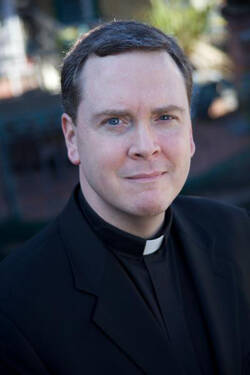On Sept. 26, 1957, America mailed a check for $50 to Room 362 of the Senate Office Building in Washington, D.C. The check was made out to “Senator John F. Kennedy” and represented payment in full for an article he had written about the ongoing crisis in Algeria (10/5/57). There is no evidence that Senator Kennedy cashed the check; he was, after all, fabulously wealthy and Kennedys prided themselves on the fact that they never carried money. Apart from the fact that he wouldn’t have known how to cash a check, he also would have lacked the time to do so. In the autumn of 1957, Kennedy’s national profile was rising fast; serious people were seriously talking about a presidential run in 1960.
One of the ways Kennedy chose to stand out from the rest of the presidential pack was in his public position on Algeria. In a speech on the Senate floor and later in an article in this magazine, Senator Kennedy bucked the foreign policy establishment by suggesting that in the ongoing struggle for control of France’s African possession, the United States should side with the native Algerians rather than with the government in Paris.
For this the wise old men chastised him. Dean Acheson, former U.S. Secretary of State, described Kennedy’s views on Algeria as “the juvenile utterances of a junior Senator.” Kennedy responded in America, writing that “there is, of course, no arguing with those who feel that to discuss the Algerian question in other than the clichés of official French policy is to commit a moral outrage.” At the same time, Kennedy knew that there was no obvious, lasting solution to the Algerian problem, that “no simple slogan or formula will provide a facile solution, and perfect justice in the dispute is impossible to obtain.”
I was reminded of that last bit when I read the article by Elias D. Mallon, S.A., in this issue of America. Nearly 60 years after J.F.K. wrote for these pages, America once again looks at a seemingly intractable problem in the Mediterranean region. Father Mallon’s analysis is, in fact, a faint echo of Senator Kennedy’s caution, especially when Father Mallon writes that “to expect democracy in the Middle East to emerge, develop democratic institutions and thrive in a decade or two is not only unrealistic; it is unfair.” Indeed, such a course would amount to something President Kennedy himself derided in a 1963 speech, an unsustainable “Pax Americana enforced on the world by American weapons of war.” Still, there are many in the foreign policy establishment today who argue for such a “historically naïve” form of progress, says Father Mallon: “For many in the United States, democracy means ‘just like us.’”
What, then, is the solution? Well, as John Kennedy would argue, any solution must begin with the humble recognition that we live in a fallen world and not merely in an imperfect society. As he said in 1963, peace and progress should be “based not on a sudden revolution in human nature but on a gradual evolution in human institutions—on a series of concrete actions and effective agreements which are in the interests of all concerned.” That seems a more reasonable starting point, not just in the Middle East but also in Europe, which Paul D. McNelis, S.J., examines in this issue, as well as in the pursuit of sustainable global development, which Jeffrey D. Sachs discusses.
In all these efforts, however, we would do well to remember that we are the creatures and not the Creator. In the final analysis, real, lasting change requires the conversion of hearts and that, in turn, almost always requires the aid of grace. That is easier said than done, of course, especially in those parts of the world where the people ask not what they can do for their country but are focused instead on what their country is doing to them.








